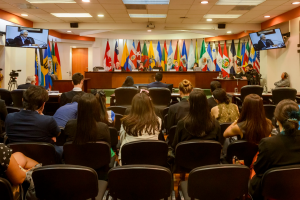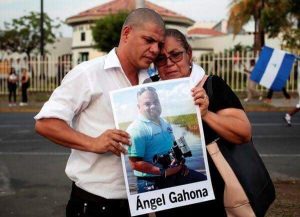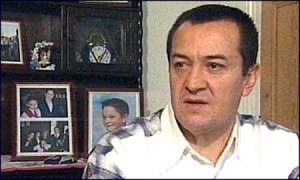By: Sarah Peck
Impunity Watch News Staff Writer
PORT OF SPAIN, Trinidad and Tobago – In a landmark move to bolster press freedom and human rights across the Caribbean, the Caribbean Court of Justice (CCJ) and the United Nations Educational, Scientific and Cultural Organization (UNESCO) have formalized a partnership aimed at enhancing freedom of expression, access to information, and the safety of journalists. The agreement, signed in October 2024, underscores a commitment to upholding Article 19 of the Universal Declaration of Human Rights, which guarantees the right to seek, receive, and impart information.
 |
The Caribbean region has faced persistent challenges regarding press freedom, including threats against journalists, restrictive defamation laws, and government-imposed censorship. In recent years, journalists in countries such as Guyana, Trinidad and Tobago, and Jamaica have faced harassment and intimidation for covering sensitive topics such as corruption and organized crime. For example, in 2022, Guyanese journalist Glenn Lall, the publisher of Kaieteur News, faced legal threats and alleged government pressure for his investigative reporting on oil contracts. Similarly, in 2014, Trinidadian investigative journalist Mark Bassant had to go into hiding due to death threats linked to his reporting on drug trafficking networks. Additionally, restrictive defamation laws in the region, such as the controversial criminal libel laws in Grenada and Antigua and Barbuda, have historically been used to silence critical voices in the media. In some cases, governments have imposed censorship measures, such as suspending broadcast licenses or restricting access to certain publications, further limiting press freedom.
While the CCJ has long been regarded as a guardian of constitutional rights, this new collaboration signals an increased judicial commitment to protecting journalists and fostering transparency. UNESCO’s involvement brings a wealth of resources and expertise in media development, training programs, and policy advocacy. By working together, the CCJ and UNESCO seek to create an environment where journalists can operate freely without fear of persecution. This initiative aligns with global efforts to combat disinformation, promote access to justice, and safeguard democratic institutions.
As the final appellate court for several Caribbean nations, the CCJ plays a crucial role in interpreting constitutional provisions related to freedom of speech and the press. The court has historically ruled on defamation cases and media restrictions, balancing national security concerns with fundamental human rights. This partnership is expected to enhance judicial training and legal frameworks that support media independence.
One of the key components of this initiative is capacity-building among legal professionals. Judges, lawyers, and policymakers will receive training on international standards related to freedom of expression, ensuring that future rulings reflect best practices in human rights law. Additionally, efforts will be made to revise outdated laws that stifle press freedom, such as criminal defamation statutes, which have been used to silence dissent.
For journalists operating in the Caribbean, this partnership represents a potential turning point. Investigative reporters and independent media organizations have often faced legal intimidation, harassment, and physical threats for exposing corruption and human rights abuses. The collaboration between UNESCO and the CCJ is expected to provide journalists with stronger legal protections and recourse when their rights are violated.
Moreover, the initiative aims to improve access to public information by advocating for stronger transparency laws. This is particularly significant in a region where government secrecy and limited access to official records can hinder investigative journalism. By promoting open governance and legal safeguards for journalists, the CCJ and UNESCO are taking a proactive stance in ensuring that democracy and accountability are upheld.
The partnership between the CCJ and UNESCO marks a significant step forward in the fight for press freedom in the Caribbean. By reinforcing legal protections, educating judicial actors, and advocating for policy reforms, this collaboration has the potential to reshape the media landscape in the region. Moving forward, its success will depend on the commitment of Caribbean governments, media professionals, and civil society to uphold the fundamental right to free expression.
For further information, please see:
Freedom House – Freedom in the World 2023 – Antigua and Barbuda – Mar. 2023
Ifex – Electronic Crimes Act in Grenada Appears to Recriminalise Defamation – 12 Sep. 2013
International Press Institute – Journalist flees Trinidad and Tobago after threats – 26 May 2014
Stabroek News – Glenn Lall goes to court over oil deal with Exxon subsidiary – 14 Jan. 2022
WACC – Tensions between media censorship and regulation in Jamaica – 12 Aug. 2020



